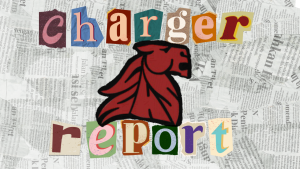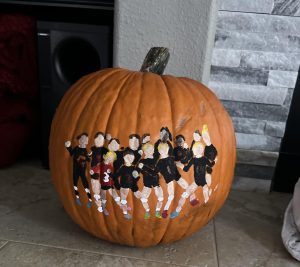Chatfield’s Diversity Issues
October 9, 2019
When it comes to seeing the world in its entirety, it tends to be difficult, since there’s only so much knowledge that we can pack into our measly 3-ish pound brain. The big picture: even with all the knowledge we have access to, we can’t genuinely understand what every person in the world experiences. While empathy can lead us far down the path of someone else’s shoes and help us relate, it takes a lot of work to commit to expanding our bubble, which many of us don’t feel we have the time to do. And without an exception, such an issue – and the apathy that surrounds it – happens within our own walls of Chatfield, and therefore becomes the rule.
While it’s obvious that our school is predominantly white, the statistics help put the population into better perspective. Based off of the U.S. News and World Report, a whopping 81% of the school is white, with 13% Hispanic, 4% mixed race, 1% black, and lastly, 1% Asian. So the question: are we unconsciously perpetuating racial stereotypes as a result of the overwhelming majority? Following an incident during our sophomore class meeting at the end of September where a racial slur was Bluetoothed onto the screen, the answer in this case may be yes.
As high school students, especially in a day and age where technology and social media makes access to opinions especially easy, there is no excuse for the usage of any type of discriminatory speech and acts. It doesn’t matter what songs you listen to or which person gives you a “pass” to say whatever you like; in a world as diverse as ours, discrimination in any form is unacceptable and comes with severe consequences that we can’t seem to comprehend. Chatfield’s diversity comes in the form of differing political ideology, gender, sexual orientation, and life experiences. In a way, it’s what makes all of us the same.
But belonging in these categories does not excuse us from willingly standing up against people who you recognize are being racist in some (or any) capacity. While they might not necessarily be explicitly derogatory towards someone of a different race, participating in any so-called “humorous” dark jokes at the expense of a race that isn’t your own is most definitely part of the issue. That isn’t to say that making jokes is a bad thing; the University of Nebraska of Omaha did a research project about these kinds of jokes to see if they affected group interactions. It was found that good-natured humor “triggered positive problem-solving behaviors, procedural suggestions, and goal orientation.” Basically, what this is telling us is that our interaction with other people improves when we don’t make fun or tease ourselves or the people around us. While everyone loves a good roast, this is more applicable to the demeaning jokes that aren’t appropriate for any situation, and the accompanying lack of interpersonal relations with the people who say them often. The more jokes you make at the expense of others, the less likely you are (especially when you leave Chatfield) to make friends in peers, colleagues, or people on the street.
Targeting specific people with the intention to make “a joke out of it” is not only offensive, but it’s also extremely ignorant. It’s not even limited to just saying a racial and derogatory term; it’s the fact that the words we say have an impact. Even if it wasn’t meant to hurt anyone’s feelings, the fact of the situation is that it’s not ethically or morally okay to say. This is something that can translate to the environment outside of high school; a video has come out from the CU Boulder campus exposing a woman of calling black students the n-word because she accused them of stalking her. This type of inexcusable behavior on her part will (rightfully so) follow her forever. Whatever the influence is, it doesn’t matter, because as students and as a people, we have a responsibility to be the best versions of ourselves as possible. That’s why Chatfield groups like Multi-Cultural Alliance (MCA) and Kiwanis Education Youth Club (KEY Club) are so important. They help our students empathize with people different from themselves and set the standard for how we treat people day-to-day.
Chatfield does try incredibly hard to make up for the remaining absentee diversity factors through clubs, like MCA or KEY Club, and activities such as Unity Week, CHOP, or one of our other numerous donation and charity projects all year. The clubs do their best in helping people from all groups, and it should be something that reflects in our community as well. The memories and reputation we carry on from our high school years should not center around juvenile, racist behavior and derogatory slurs. As two seniors who will be joining the “real world” as voting adults in less than a year, its extremely important for us to recognize the implications of saying inappropriate things in any setting. A lack of motivation to do so, whether you are explicitly participating in saying derogatory things or not, leaves us where we were fifty years ago.
The only way we can ever get ourselves to understand and to see the other types of realities out there is to acknowledge the issues. This won’t only make ourselves better people, but it can also better our understanding of the world around us, and spread the true Charger Pride that our community has to offer.






